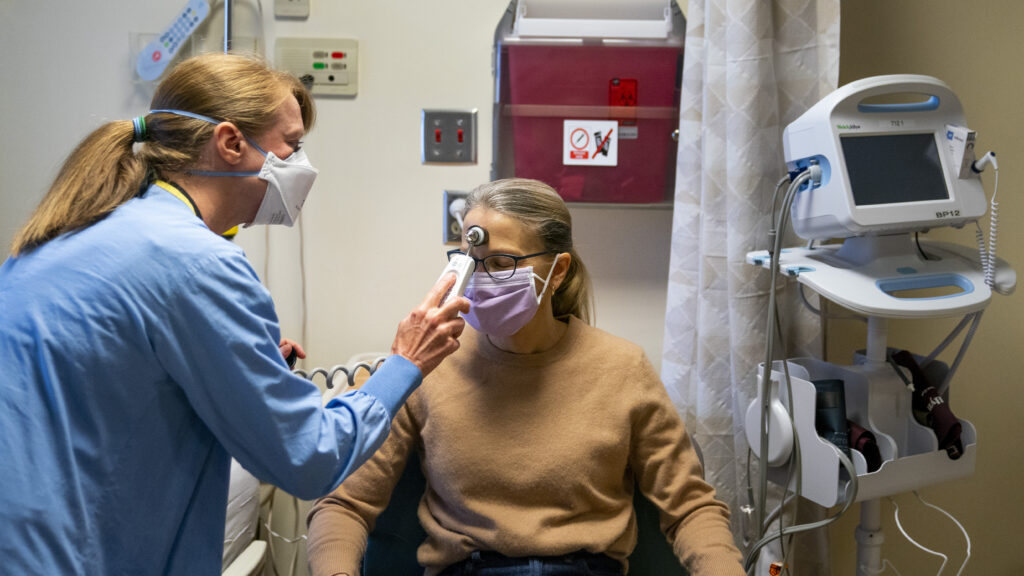Education
U.S. Proposal Threatens Future of Advanced Nursing Education

The U.S. Department of Education has proposed removing advanced nursing degrees from its list of professional degree programs. This decision, if implemented, could severely limit federally subsidized loan options for students pursuing advanced nursing education. With a projected need for approximately 30,000 new advanced practice nurses each year through 2032, the implications of this proposal raise significant concerns.
Shortages of registered nurses are particularly acute in rural and underserved communities, hampering the quality of care that patients receive. Current estimates indicate a critical need for advanced practice nurses trained in specialized areas such as primary and acute care, oncology, pediatrics, gerontology, and anesthesia. By limiting access to federal funding, the administration risks making the pursuit of higher education prohibitively expensive for many nurses who already hold bachelor’s degrees.
Currently, federal support caps at $20,000 annually and $100,000 over a lifetime, which may not cover the full costs associated with master’s and doctoral programs. This financial barrier can deter nurses from seeking the advanced training necessary to meet the growing demands of an aging population and the complexities of modern health issues.
Over 18 million people in the U.S. are currently living with cancer, while more than 29 million Americans have at least one chronic disease. This landscape underscores the need for highly trained nurses equipped to deliver specialized care. Additionally, mental health issues are prevalent, with reports indicating that 4.5 million adolescents have experienced a major depressive episode, highlighting the urgent need for qualified healthcare professionals.
The administration’s proposal raises questions about its understanding of the nursing profession’s evolution. Approximately 460,000 advanced practice nurses currently provide primary care and are essential in managing hospital patients. Research shows that nurse practitioners provide quality care with positive health outcomes, often in collaboration with physicians but also exercising independent judgment in patient care.
In 2023, nursing schools in the U.S. turned away over 65,000 applicants to baccalaureate and graduate programs primarily due to a shortage of qualified faculty. This trend indicates a looming crisis in nursing education that the proposed changes may only exacerbate. If fewer individuals can pursue advanced nursing degrees, the pipeline for future nurse educators and researchers could dry up, undermining the profession’s ability to innovate and improve care.
The prospect of fewer advanced practice nurses threatens public health significantly. A reduction in this workforce could lead to increased rates of preventable illness and higher mortality rates, particularly in communities already facing healthcare shortages. Nurse practitioners, especially in underserved areas, may seek employment elsewhere if their financial support is diminished, leading to even greater gaps in care.
In a statement reflecting the sentiments of many in the field, Connie M. Ulrich, professor of nursing and medical ethics at the University of Pennsylvania, emphasizes that nursing has matured into a highly skilled profession essential for addressing modern health challenges. She, along with colleagues Mary Naylor and Martha A.Q. Curley, argue that the Department of Education’s proposal contradicts the federal definition of a professional degree established in 1965.
This definition asserts that a professional degree signifies the completion of academic requirements for practice and a level of skill beyond a bachelor’s degree. By failing to recognize nursing as a profession, the Department of Education risks undermining the contributions of nurses and the quality of care they provide.
As the healthcare landscape becomes increasingly complex, the question remains: Why would policymakers jeopardize the future of nursing education at such a critical juncture? The nursing profession plays a pivotal role in the U.S. healthcare system, and recognizing it as a vital component is essential for sustaining quality care.
The voices of nurses, who are often the unsung heroes of healthcare, deserve to be heard. As highlighted by Tatiana Kennedy Schlossberg, who remarked on the competence and grace of nurses during her battle with leukemia, it is time for a reassessment of how nursing is perceived and supported. The current proposal must be reconsidered to ensure that the nursing workforce is equipped to meet the challenges ahead and continue providing high-quality care to all Americans.
-

 Technology4 months ago
Technology4 months agoDiscover the Top 10 Calorie Counting Apps of 2025
-

 Health2 months ago
Health2 months agoBella Hadid Shares Health Update After Treatment for Lyme Disease
-

 Health3 months ago
Health3 months agoErin Bates Shares Recovery Update Following Sepsis Complications
-

 Technology4 weeks ago
Technology4 weeks agoDiscover 2025’s Top GPUs for Exceptional 4K Gaming Performance
-

 Technology2 months ago
Technology2 months agoElectric Moto Influencer Surronster Arrested in Tijuana
-

 Technology4 months ago
Technology4 months agoDiscover How to Reverse Image Search Using ChatGPT Effortlessly
-

 Technology4 months ago
Technology4 months agoMeta Initiates $60B AI Data Center Expansion, Starting in Ohio
-

 Technology4 months ago
Technology4 months agoRecovering a Suspended TikTok Account: A Step-by-Step Guide
-

 Health4 months ago
Health4 months agoTested: Rab Firewall Mountain Jacket Survives Harsh Conditions
-

 Lifestyle4 months ago
Lifestyle4 months agoBelton Family Reunites After Daughter Survives Hill Country Floods
-

 Technology3 months ago
Technology3 months agoUncovering the Top Five Most Challenging Motorcycles to Ride
-

 Technology4 months ago
Technology4 months agoHarmonic Launches AI Chatbot App to Transform Mathematical Reasoning
















